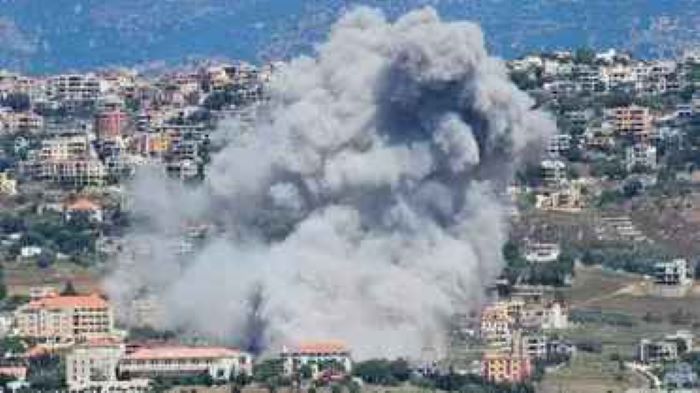Diplomats walk out in protest during Netanyahu's UN address amid intense Israeli air strikes on Lebanon
Tensions have risen in the Middle East as Israel launched several new airstrikes targeting Hezbollah strongholds in southern Beirut, Lebanon. Recent attacks have caused considerable destruction and civilian casualties, further increasing unrest in the region. This happened when Israeli Prime Minister Benjamin Netanyahu was delivering a speech at the United Nations General Assembly. The attacks attracted global attention and led to diplomatic protests.
1. During Netanyahu's speech at the UN General Assembly, several diplomats walked out in protest. Netanyahu used the forum to defend Israel's actions, citing its right to self-defense and promising to continue military operations against Hezbollah.
2. The Israeli Defense Forces (IDF) launched a wave of airstrikes on Hezbollah-controlled areas in southern Beirut. These attacks shifted Israel's military focus from Gaza to Lebanon, causing widespread destruction in densely populated areas.
3. Hundreds of civilians were killed as buildings collapsed and areas were reduced to debris. The attacks led to mass evacuations, with local residents fleeing the targeted areas out of fear.
4. Hezbollah leader Hassan Nasrallah, long considered the primary target of Israeli operations, was reportedly safe. While Israel focused on attacking Hezbollah's leadership, Hezbollah sources claimed that Nasrallah was safe, although he was still in hiding.
5. In response to the airstrikes, Hezbollah launched rocket attacks on Israel, prompting Israeli officials to warn civilians living in Hezbollah strongholds to evacuate, further escalating the conflict.
6. High-ranking Hezbollah officials, including Muhammad Ali Ismail, commander of the group's missile unit in southern Lebanon, were among those killed in the air strikes. Israel claimed that these attacks had weakened Hezbollah's leadership structure.
7. Netanyahu vowed to continue Israel's military campaign until Hezbollah is neutralized on Israel's northern border. He issued a stern warning to Iran, accusing Tehran of inciting violence through its support for Hezbollah.
8. While Israel claimed it had targeted Hezbollah's weapons depot in southern Beirut, Hezbollah denied the allegations. The attacks caused considerable destruction, with six buildings reportedly destroyed and dozens of people injured.
9. The attacks, coupled with the already devastating conflict in Gaza, drew widespread international condemnation. The United Nations and humanitarian organizations expressed concern over the situation in Lebanon, describing it as one of the deadliest periods in the country in recent decades.
10. Iranian President Massoud Pejeshkian strongly condemned the Israeli air strikes and termed them war crimes. These attacks have further escalated tensions in the region, and increased the possibility of a broader conflict.
Also read:-
Serious allegations against former RG Kar Principal, if proved, can lead to death penalty: Court


Comments are closed.